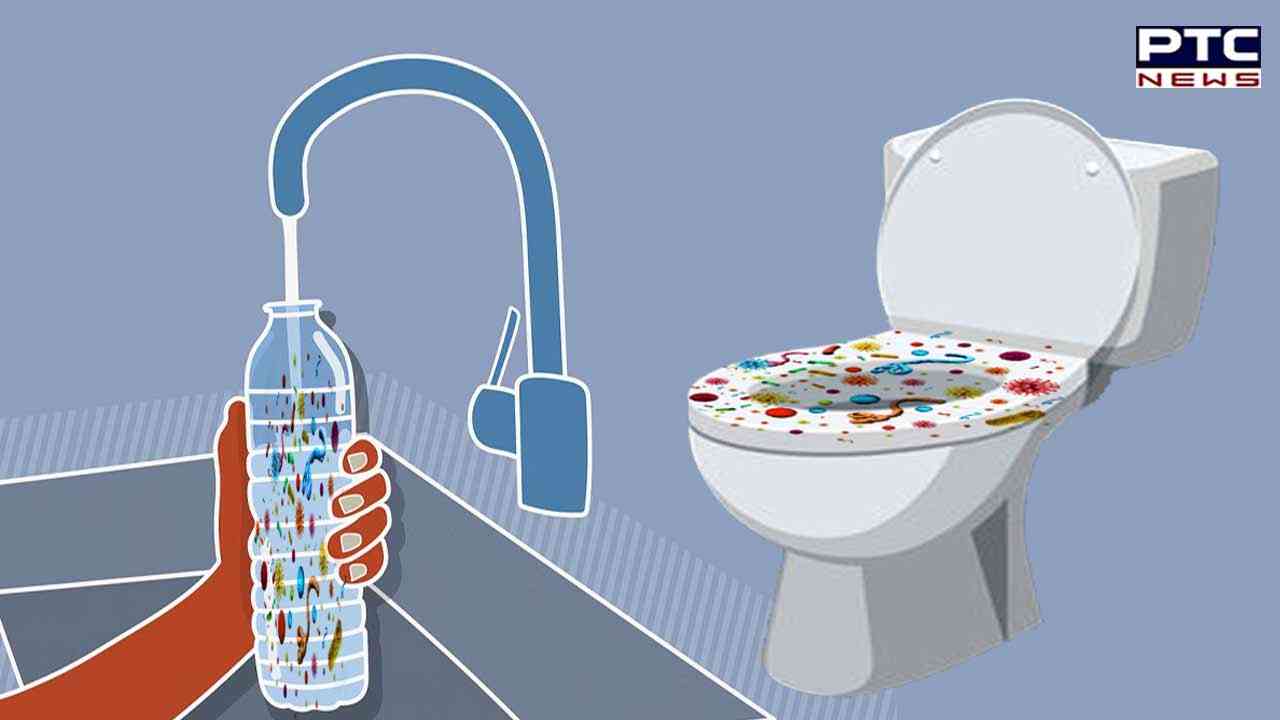Study shows reusable water bottles hold more bacteria than a toilet seat
Re-used bottles may serve as a breeding ground for bacteria
PTC News Desk: In a recent study showing that the reusable bottles can hold more than 40,000 times bacteria than an average toilet seat.
According to information a team of researchers from US-based waterfilterguru.com swabbed different parts of water bottles including the spout lid, screw-top lid, stray lid and squeeze-top lid, three times each, and found two types of bacteria present - gram-negative rods and bacillus.

Also Read: Tourist throng Mudumalai Theppakadu to see baby jumbo from Oscar-winning 'Elephant Whisperers'
"They are objects that can't betray us," Australian Catholic University clinical psychologist and hoarding disorder expert, Associate Professor Keong Yap, said, comparing the phenomenon with objects children use to soothe anxiety (like stuffed toys). "They are reliable and predictable, unlike people who can hurt us," Yap added.
The researchers in their study explained that the negative bacteria can cause infections that are increasing resistant to antibiotics. There are certain types of bacillus than can result in gastrointestinal issues. The cleanliness of the bottles are compared by the researchers to the household objects and confirmed that the sinks contain twice the amount of germs. These germs can harbour four times and cause diseases.
"The human mouth is home to a large number and range of different bacteria," Imperial College London molecular microbiologist, Dr Andrew Edwards, said, as per New York Post. "So it's not surprising that drinking vessels are covered in microbes," he added.
These bottles can serve the breeding ground for huge amount of bacteria, and it is not necessarily dangerously, said a microbiologist at the University of Reading, Dr Simon Clarke. "I've never heard of someone getting sick from a water bottle. Similarly, taps are clearly not a problem: when did you last hear of someone getting ill from pouring a glass of water from a tap? Water bottles are likely to be contaminated with the bacteria that are already in people's mouths," Clarke said.
Also Read: Respiratory infection detected in West Bengal, 12,343 cases reported in over two months